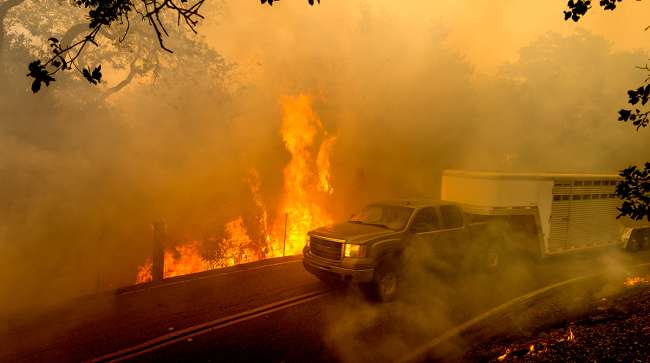Senior Reporter
House Lawmakers Examine FEMA’s Disaster Response Policies

[Stay on top of transportation news: Get TTNews in your inbox.]
The COVID-19 pandemic prompted several congressional transportation leaders to examine the Federal Emergency Management Agency’s ability to assist citizens during events that impede access to freight and passenger corridors.
Rep. Dina Titus (D-Nev.), chairwoman of the House Economic Development, Public Buildings and Emergency Management Subcommittee, has emphasized a need for ensuring disaster response efforts increase inclusivity, as well as fairness. The panel met recently for a hearing examining the federal aid that communities receive after severe-weather events and other disasters.
“The continued failures by our emergency preparedness apparatus at every level of government, to account for the well-being of certain communities prior to, during, and in the wake of disasters, is unacceptable and must be addressed,” said the chairwoman July 28.
Disaster 0803 Eu Pw by Transport Topics on Scribd
She continued, “Whether it’s due to underfunded public transportation … or insufficient means to pay for a personal vehicle, fuel and alternative means for shelter … vulnerable populations in the path of disaster often lack the resources to evacuate.”
The panel’s ranking member, Rep. John Katko (R-N.Y.), focused primarily on ensuring emergency management systems benefit the populations of places affected by disasters.
“Americans are responding to the COVID-19 pandemic, as well as flooding, storms and wildfires across the country. In many cases, these challenges are on top of ongoing recovery efforts from prior disasters,” Katko said. “To be successful, lawmakers must work to plan for and address the needs of the most vulnerable among us. These efforts are not only essential to saving lives, but to helping impacted areas put the pieces back together quickly.”
House Democrats have pointed to various experts and observers who claim severe-weather events, such as hurricanes and floods, as well as wildfires, will persist due to climate change. Per the pandemic response, those policymakers indicated they intend to examine the Federal Emergency Management Agency’s efforts to coordinate shipments of personal protective equipment to localities with high numbers of COVID-19 cases.
Thank you Chair @RepDinaTitus for leading the Committee in today’s important hearing exploring why disasters can be devastating for communities of color, people w/ disabilities & others. Watch here: https://t.co/RbBoS916kc — Committee on Transportation and Infrastructure (@TransportDems) July 28, 2020
Top House Democrats recently reached out to the White House to order agencies to develop contingency plans focusing on storms, floods, fires and other extreme weather events during the pandemic. They also indicated those plans need to utilize the Robert T. Stafford Disaster Relief and Emergency Assistance Act and the Defense Production Act.
“We request the White House order all appropriate federal agencies to create contingency and surge plans for how to support communities in the case of a compound threat scenario,” Reps. Peter DeFazio of Oregon, Frank Pallone of New Jersey and Eddie Bernice Johnson of Texas — the chairs of the Energy and Commerce, Transportation and Infrastructure, and Science, Space and Technology committees — wrote to Vice President Mike Pence on July 16. “Essential public and private sector personnel already stretched thin by the pandemic play vital roles in keeping communities safe and lifelines operational during natural disasters.”
This month, FEMA administrator Peter Gaynor told lawmakers overlapping disasters would result in intricacies within complex assignments. As he put it, “COVID-19 may slow down state, territorial and tribal abilities to conduct damage assessments for disasters such as flooding, severe storms and hurricanes. Response to other disasters, in turn, can slow down the ability of officials to collect crucial information about COVID-19 cases and stymie their ability to share the critical data needed to combat it.”
He added, “Consequently, there is a potential for a compounded effect that could result in a larger emergency than each disaster would be on its own.”
Want more news? Listen to today's daily briefing:
Subscribe: Apple Podcasts | Spotify | Amazon Alexa | Google Assistant | More




